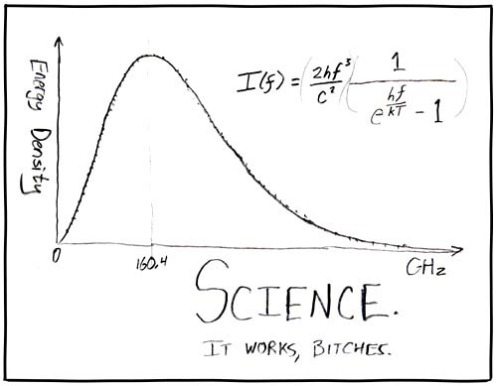Critiquing The Quantified Self
I have it on good authority that the Quantified Self Conference which concluded last week made an extremely powerful case for the viability of this burgeoning trend. David Bausola opined that “it’s not a fad, its a new industry”; not bad for a bunch of data logging enthusiasts.
Despite (or more likely, because of) the intense nerdiness and dry matter of statistical analysis hovering about the quantified-self movement the whole thing represents a really interesting area. In short is this where control societies and digitised existence are ultimately tending toward? I hope to sketch why the implications of that scenario are both intriguing and potentially worrying
While I am aware the rhetoric espoused by Gary Wollfe in his recent NY Times piece {link} is likely to be unrepresentative of the movement as a whole but I’m completely going to haul him up on it as we go along.
Humans make errors. We make errors of fact and errors of judgment. Sometimes we can’t even answer the simplest questions. Where was I last week at this time? How much money do I typically spend in a day? These weaknesses put us at a disadvantage. We make decisions with partial information. We are forced to steer by guesswork. We go with our gut. That is, some of us do. Others use data. If you want to replace the vagaries of intuition with something more reliable, you first need to gather data. Once you know the facts, you can live by them.
The first thing which merits attention is the derogatory attitude towards intuition. I’m aware most of this is sophistry but its telling in the manner in which it plays to certain prevailing attitudes and makes certain conceptions of our time discernible. What might the rise of the quantified self tell us about conceptions of our psychological make up.
I’ve been informed to a large degree by Lisa Blackman, Luckhurst, Despret, Crary and Smith who through their individual research have conducted a wonderful genealogical excavation of the reasons why suggestion, mob behaviour and host of other phenomena often bracketed under the heading of subliminal psychology came to be relegated in favour of the psychological models in favour today. In short such phenomena escaped the rationally bounded individual: something which moved between bodies (suggestion or the intoxicating feeling of marauding in a rabble of people) confounded the volition which the conscious individual imagined they exerted over their choices and decisions. I’ve also been influenced by my recent dalliance into hypnotherapy literature, which phrases things in an informative manner. It contends that the conscious element of experience can be overbearing, and it’s rigidity (think along the lines of left brain = conscious self, right brain = unconscious) can be inhibiting. Hypnotherapy seeks to draw one’s will out, allow it to be actuated and to circumvent the conscious mind if that’s a necessary step to realising one’s will.
I wouldn’t deny that intuition can on occasion be misguided but who’s to say that is the fault of the intuition rather than the conscious self hijacking the intuitive process before it has a chance to be realised. I’m not aiming at a vision of two minds at conflict (though if that entices you then you should check out The Origin of Consciousness in the Breakdown of the Bicameral Mind) think instead of about how difficult it can be to accomplish a task such as juggling if you try to consciously pay attention to every movement you make: rational deliberation can get in our way as easily as gut feeling.
The Quantified Self movement unabashedly proclaims itself as the apogee of the triumph of our rational faculties over our muddled intuitive experience. ‘Self Knowledge Through Numbers’ is the tag line for the website. Such a bold claim, and one which I find fascinating relative to other methods of attaining self knowledge (most of them marked by introspective if not blatantly esoteric practices which engage the element of our psyche least disposed to rational, analytical work). Phrases such as ‘go with your heart’ point to the moments where there is dissonance between what we rationally deem to be the correct course of action and what we feel compelled to do. Rather than acknowledge the heart impulse as indicative of our whole being’s orientation towards an event the QS movement allows the rational element of our existence to be backed up; our rational deliberation can be outsourced to data mining our daily lives, what our conscious mind would like to enforce can now be backed up by HARD DATA.
I don’t wish to appear like I am singling out the QS movement as bad (as it undoubtedly isn’t, intelligently equipping oneself against western medicines symptom conscious proscriptions is but one instance of its potentially empowering benefits) but I just want to highlight what an interesting shift this would be, if the intuitive element of our experience were to find itself quietened by the power of statistical analysis
Aside from inhabiting a really interesting fissure (from which we can tease out a number of issues) there is another, more radical thing which the QS must consider. This is something which only recently came to my attention but it truly is fascinating!
 source xkcd
source xkcd
Its something called the decline effect. If you’d like a nice introduction to it I would recommend the excellent New Yorker article detailing how widespread the phenomena is and it’s troubling implications. The decline effect references how statistically proven phenomena begin to dramatically wane when the experiments which initially determined their veracity are repeatedly replicated. Jonathan Schooler’s verbal overshadowing experiment is but one famous instance of a phenomena which encompasses fields from biology, medicine, ecology, and psychology. Among the notable victims was the symmetry fad which followed in the wake of Anders Møller’s study detailing how female swallows preferred mates with symmetrical tails. Those studies also suffered from the decline effect. Of most immediate impact is the fact that antidepressants efficacy has decreased threefold in recent decades (though in my opinion that particular realm of prescriptive medicine was always precarious).
Several possibilities are proffered, such as a regression to the mean, though Schooler and others would contend that cannot account for all of what transpires. Publication bias, a great instance of the paradigmatic bias which infects the scientific process, is another. None of them are completely satisfactory explanations. Schooler advances a radical notion, inferring a parallel between quantum observer effect and the decline effect, implying that somehow by a phenomena being measured and acknowledged that the potency of its effect will decrease and decrease
In private, Schooler began referring to the problem as “cosmic habituation,” by analogy to the decrease in response that occurs when individuals habituate to particular stimuli. “Habituation is why you don’t notice the stuff that’s always there,” Schooler says. “It’s an inevitable process of adjustment, a ratcheting down of excitement. I started joking that it was like the cosmos was habituating to my ideas. I took it very personally.”
Obviously the decline effect could be a massive blow to the current means by which truth is established in the sciences, one which follows hot on the heels of parapsychology calling the statistical method into question. As the New Yorker puts it:
If replication is what separates the rigor of science from the squishiness of pseudoscience, where do we put all these rigorously validated findings that can no longer be proved?
That the outcomes of statistically measured processes may suddenly wane in potency the longer after its initial testing is presently inexplicable (though Schooler proposes an open source database which might rectify problems in the statistically driven empirical method). But whether or not it can be explained, if its effects are indeed universal then needless to say it has massive implications for the quantified self movement. What is interesting is what the decline effect and publication bias point to regarding the nature of belief – subconscious, not rationally apprehended belief – can have upon the statistical measurement process. To concede this power is to acknowledge that self knowledge through numbers may not dispell the primacy of belief, and the unconscious intuitive processes from whence that springs, from our existence.



[…] to this onset of anticipative politics is the quantified self. Problematic though the concept of self – knowledge through numbers may be it does provide a means for severely disrupting the basis from which these models draw their power. […]
Policing And Marketing: The Politics Of Anticipation « said this on June 9, 2011 at 2:30 pm |
[…] Klick Quelle Share […]
Quantified Self – Wem gehören unsere Daten? | Linux_Time said this on January 21, 2012 at 8:24 pm |
The above response is in German, and I quite like the points raised so I’ll repost (care of Google Translate, and the irony is not lost on me)
###
In Quantified Self, it’s not just about “normal” data, but rather the telemetry data of the body, may include things such as blood pressure, movement profiles but also our sleep patterns, smart phones can now cover a large number of sensors a large field of our detectable physical characteristics – the collection of this data seems to be closest relatively trivial, but especially in this “species” data is an extremely high potential for abuse, and most of the data protection criteria are not entirely clear when it comes to dealing with these data, some of these data are also “Anonymous” passed – the problem is also here that you can identify most people with only the place of residence, sex and date of birth clearly.
Especially since this data can also prepare some people some problems, such as finding a job – if these data are published, anyone Human Resources Director or stumble on this recherche responsible data when it is lit by the applicants’ “. But particularly for health insurance, these data are interesting, so you can force potential extreme sports or “wolverine” directly used to pay a higher amount of insurance – after all, the risk falling ill with these people much bigger or getting hurt than other population groups.
When asked about the use of these data, it is also the point of sharing data – what should we share this data in our view, regardless of data protection scandals? It will certainly be people who will also publish some of this data loves to Facebook – but this would result in an even greater potential for abuse. I have my doubts about the privacy discipline of many Facebook users – especially afterwards can not be determined with certainty who the data are really, as this is also partly influenced by terms and conditions.
Most surveying services also offer an API – so can other applications or platforms also access the data, thus blurring the boundary of the data belonging gradually, until no one knows to whom the data are now. This is certainly not a desirable state particularly in the increasingly frequent security and privacy scandals – it’s just a matter of time before it hits even one of these platforms.
And in response to the issue raised (by http://linux-time.de/2012/01/quantified-self-wem-gehoren-unsere-daten/), I feel it’s worth delineating between quantified self and personal data, which is the area signposted in the above comment.
Personal data comes closest to quantified self via the Locker Project and similar escapades. But the “self-hacking” beneath Quantified Self, the willful logging of data by users to improve their life, belongs to a separate but related trajectory to the insidious data logging practice of big data sinkholes like Facebook